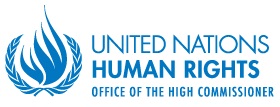I fight for the rights of those vulnerable

“I believe my role is to listen to people and understand how I can help someone in an extremely vulnerable position, what he or she needs and how the law can help protect his or her rights,” she says.
However, Jenova has fought for human rights for most of her professional life. As a judge and a lawyer, she has worked with cases of domestic and gender-based violence, fighting for more effective legal assistance for victims.
“I consider myself a mediator between the law and their rights, and I try to somehow improve their lives” Jenova says.
Fight for the rights of the most vulnerable
It was through her work in the field of law that she saw the dire conditions in which people with mental disorders are forced to live. As part of one case, she was summoned to a woman who was in a psychiatric hospital. During the conversation, they were talking about art and poetry, and Jenova said that she was amazed at what a miserable existence in anguish and cold drags out a person with such a soul.
“It was unbearable to see such a gifted person in such a situation. It is an insult to the human spirit. It is completely dishonourable to be trapped in such a manner” she said.
With this insight, Jenova ended up working with the non-governmental organization “Validity”. For 17 years, “Validity” has applied the law to ensure equality, inclusion and fairness for people with mental disorders. Working in several countries in Europe and Africa, this organization has been able to win several cases on behalf of victims of torture with mental disorders. Their work is supported by the United Nations Voluntary Fund for Victims of Torture.
As a member of the “Validity” team in Bulgaria, Jenova works to bring legislative changes in the country and improve the respect for the rights of persons with mental disorders. For example, she recently worked on a proposal for a bill to replace the existing guardianship system in Bulgaria with decision-making assistance. The guardianship system, under which a person with a mental disorder can be admitted to a specialized institution without regard to his/her opinion or consent, is still widespread in Bulgaria.
Bitter victory
Jenova has also worked on high-profile cases in which the plight of people with mental disorders and their treatment were brought to the attention of the European Court of Human Rights, including the case of Stanev v. Bulgaria. Rusi Stanev was placed under guardianship without his knowledge and in 2002 he was sent to an orphanage for people with mental disorders. The decision to placement into custody actually deprives a person of legal personality before the law.
For ten years, Jenova represented Stanev’s interests first before the national authorities and then helped to refer the case to the European Court. The decision taken in this case in 2012 changed European law. For the first time, the Court found a violation of the right to freedom from torture and mistreatment in a disability case. It also led to Bulgaria's ratification of the UN Convention on the Rights of Persons with Disabilities.
For Jenova, this victory was bitter. Stanev died while still under guardianship, and despite changes in the law, fighting for the rights of people with mental disorders remains a challenge.
“It took many years before the victory in this case was recognized, because it did not receive proper recognition in Bulgaria itself” says Jenova. “However, there are still changes in Bulgaria. They are very, very small, but they do exist”.
Jenova believes that the space that provides nongovernmental organizations and other actors with the opportunity to discuss and advocate for mental health and the rights of persons with disabilities can be expanded, but mainly only if more people begin to understand the harm that can be done to people, placed in psychiatric hospitals.
“Sometimes people justify what happened to the victims by the fact that something is wrong with them, based on their prejudices, and this is not true”, she says. “When people understand, they become active, and I can see that they begin to value human rights”.










